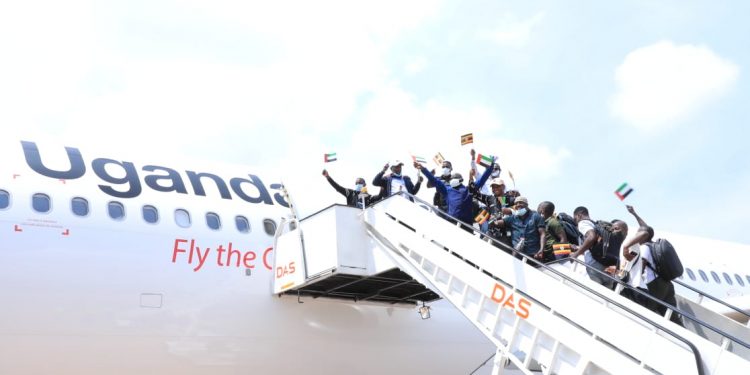Uganda Airlines is set to roll-out its Self-Handling Project before the first Quarter of 2022 ends.
The revelation was made by Shakila Rahim Lamar, the Corporate Affairs & Public Relations Manager at Uganda Airlines in a recent interview.
“This will involve passenger, baggage and cargo handling, maintenance, security and general ground operations,” Lamar said.
She added: “Self-handling will enable the Airline cut 60% of its operating costs if it handles most of its operations at its hub in Entebbe.”
During a recent press briefing, Ephraim Bagenda, the Director of Engineering and Maintenance at Uganda Airlines said the national carrier is currently spending US$250,000 per month (Shs905.9m) on contracted maintenance.
“Once we get approval (from Uganda Civil Aviation Authority) to handle ourselves and maintain our fleet, all that money will be saved,” he said.
Asked about the cost of setting up facilities for self-handling, Bagenda said the total investment is US$2.5m-inclusive of recruitment and training of staff.
Lamar says the Airline also plans to embark on third-party handling to increase shareholder value in revenue generated.
Currently, DAS Company does ground handling for Uganda Airlines.
Uganda Airlines joins other successful airlines embracing self-ground handling.
Some of the notable airlines doing self-handling include Emirates, KLM, SAS (Scandinavian Airlines), Lufthansa, Ethiopian, Kenya Airways and RwandAir.
Having started commercial operations in August 2019, Uganda Airlines carried 154,245 passengers in 2021 compared to 93,780 in 2019 and 2020 combined.
Uganda Airlines currently operates a fleet of four (4) CRJ900 and two (2) Airbus A330-800neo.
The National Carrier has expanded its network to 11 destinations since inception.
However, according to the airline’s business plan, in the second year of operation, the National Carrier had planned to have 18 and four (4) regional and international routes respectively, but this couldn’t be possible due to COVID-19 effects.





